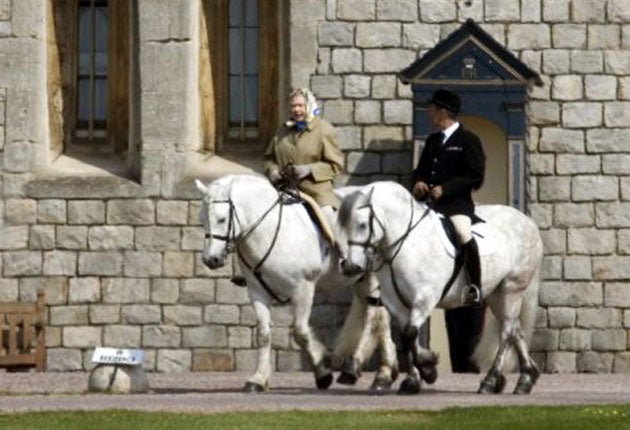Debate over escalating Royal costs set to come to the boil

The public funding of the Royal Family is a complex formula comprising government grants and Civil List payments agreed by Parliament.
While the Palace argues that it has done enough to justify how it spends taxpayers' money, MPs and those who favour a more accountable monarchy beg to differ.
Soon the debate over the escalating costs of the Royal Family will come to a head as the Queen is forced to go cap-in-hand to ministers for more cash to protect her constitutional position as head of state.
Palace aides have told Whitehall officials they need the extra money to offset the expense of maintaining the Royal Estate of palaces and to pay for increased staffing costs. But in the current financial climate any increase in the annual £35m state subsidy is politically sensitive.
Both sides are now engaged in a public relations battle as time runs out on negotiations that must settle the matter by the end of next year when the present deal on the Civil List expires. A second deal on the £15m paid in grants for the upkeep of the palaces is due to be finalised in 2011.
Royal aides contend the Queen's accommodation is in a parlous state and point to 2007, when Princess Anne had a narrow escape after some loose masonry was dislodged from the roof on Buckingham Palace. Another piece fell this month, missing a police officer who was on duty.
They also say that the Palace state rooms, where the Queen entertains foreign leaders, are in urgent need of repair. A Palace audit of the overall cost for this growing backlog of repairs estimates the bill to be £40m. And all the time Royal aides repeats the claim that the Queen and her household have cut spending to the bare minimum.
The Department for Culture, Media and Sport counters that by stressing that the Royal Household is just one of 70 public bodies, including the Arts Council and English Heritage, for which it provides state grants.
In private we can be sure that the Palace and ministers are putting their respective cases in much more forceful terms.
In public we can only look to the royal accounts, published each year, which tell us in general how the Queen spends the money. But they are not published by an independent watchdog such as the National Audit Office which oversees other public spending.
This year's £41.5m overall cost of the monarchy, calculated per taxpayer and not per person, works out at about £1.33 each. It clearly shows that the Queen is unable to live within her public means, spending more than the £35m in Government grants and Civil List payments she receives from the public purse each year. To meet this extra cash demand the Queen has been forced to dip into her reserves built up over the past 10 years.
If the Queen continues to spend money from the reserve at the rate she is now, it will be used up by the start of her Diamond Jubilee year in 2012.
Under a financial memorandum drawn up between the Government and the monarch, there is an obligation for the Royal Household to provide officials with easy access to any documents which have a bearing on the public cost of the accommodation of the Queen.
It is this correspondence and exchange of information which the Information Commissioner says should be disclosed in the public interest.
In his decision upholding The Independent's request he disagreed with the Government's contention that if the information was made public it would have a "chilling effect" on the future disclosure of private documents by the Palace.
The commissioner's ruling is important because it gives the British public a say on how this latest financial crisis between Government and monarch should be settled.
Join our commenting forum
Join thought-provoking conversations, follow other Independent readers and see their replies
Comments